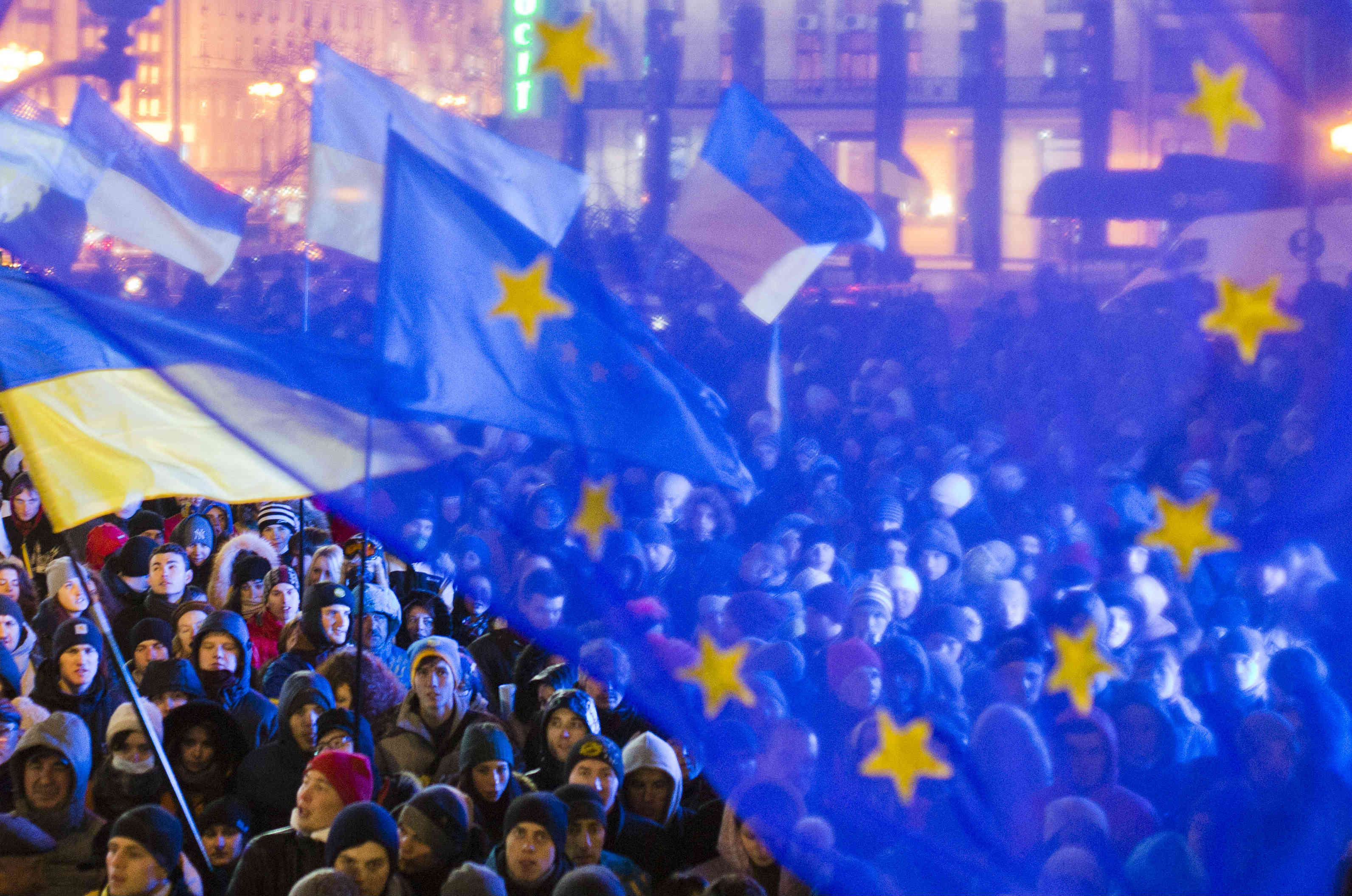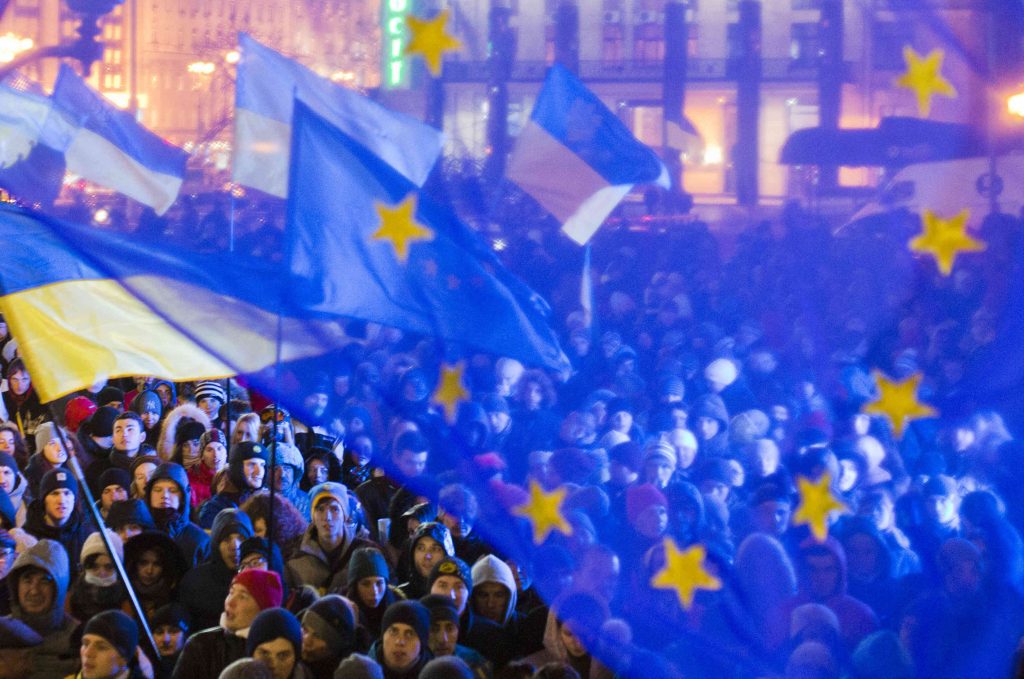 The chattering classes in Kyiv remain riveted by the startling revelations from the Panama Papers, the resignation of Prime Minister Arseniy Yatsenyuk, and the formation of a new government, but there’s another story that deserves attention. On April 20, the European Union proposed visa-free travel in Europe to Ukrainians. It’s no exaggeration to say that Ukrainians have been waiting for this announcement for years. Even after the Euromaidan Revolution, visa-free travel within the EU wasn’t assured. Parliament considered more than one bill that would have derailed Ukraine’s coveted travel status, while activists fought back and won.
The chattering classes in Kyiv remain riveted by the startling revelations from the Panama Papers, the resignation of Prime Minister Arseniy Yatsenyuk, and the formation of a new government, but there’s another story that deserves attention. On April 20, the European Union proposed visa-free travel in Europe to Ukrainians. It’s no exaggeration to say that Ukrainians have been waiting for this announcement for years. Even after the Euromaidan Revolution, visa-free travel within the EU wasn’t assured. Parliament considered more than one bill that would have derailed Ukraine’s coveted travel status, while activists fought back and won.
Kyiv’s activists just defeated a draft asset forfeiture law that could have prevented Ukraine from obtaining visa-free travel in the European Union. Draft law 4057 ostensibly targeted the ill-gotten gains of corrupt actors from the former regime of Viktor Yanukovych, but it could have been used against any Ukrainian citizen. It contradicted European standards, violated private property rights, and would have promoted corruption.
The civic group Reanimation of Project of Reforms (RPR) identified four big flaws in the draft:
First, it allowed Ukrainian prosecutors to seize assets of the accused without a court conviction, violating Article 41 of the Ukrainian constitution, which states that “confiscation of property may be applied only pursuant to a court decision, in the cases, in the extent and by the procedure established by law.” This clause also violated EU Directive 2014/42 on the freezing and confiscation of criminal proceeds; consequently, it was condemned by the EU.
Second, it shifted the burden for demonstrating the legal origin of assets from prosecutors to the accused, violating EU regulations governing the freezing and confiscation of assets.
Third, the draft law did not require prosecutors to notify the owner of the assets in advance that forfeiture proceedings had been initiated. This means that owners would have only discovered that an asset forfeiture was entered against them without any opportunity to defend themselves.
Finally, Articles 96-1 and 96-2 of Ukraine’s criminal code already permit asset confiscation, although authorities can only do so after a defendant is convicted of a crime, which is in line with EU standards.
Since Ukraine’s criminal code already provides prosecutors with the power to confiscate ill-gotten gains, activists believed the push to adopt 4057 was driven by two other factors.
First, according to activists, it purposely overreached to allow Yanukovych and his cronies to successfully contest the seizure of their assets in the European Court of Human Rights. This would have required the government of Ukraine to return all assets illegally confiscated under 4057 to their original owners, ultimately legalizing possession of their corrupt gains through the backdoor.
Activists also feared that powerful businessmen or politicians would use the draft law to acquire assets they coveted. “Serhiy Pashinskyi, the MP who lead the charge to adopt this law, is allegedly a corporate raider in Ukraine and could have used this law in conjunction with corrupt prosecutors to steal assets from innocent people,” Oleksandra Ustinova, a board member of the Anti-Corruption Action Center (AntAC), said.
This was Pashinskyi’s second attempt “to confiscate the so-called Yanukovych’s assets without proving the need of such confiscation in court,” RPR Advocacy Manager Yaroslav Yurchyshyn told me on April 15. Since bill 4057 would not apply solely to Yanukovych, Yurchyshyn and other activists believed Pashinskyi’s ultimate goal was to provide corrupt prosecutors with the legal justification to seize assets from any Ukrainian citizen or company.
After the previous attempt—bill 3025—failed to pass parliament, Pashynskyi and allies from the Popular Front party registered 4057 in parliament on February 15 and quickly cut off debate. “By February 19, the substance of the draft law was already considered and we had no chance to explain to the public why this law was so bad,” lamented Yurchyshyn.
Activists from RPR and AntAC quickly regrouped, and began aggressively lobbying parliament to kill the new bill. As a result, Andriy Kozhemiakin, an MP from Yulia Tymoshenko’s Fatherland party, sent the bill to Brussels for further review, thereby preventing Pashinskyi from bringing it to a final vote.
“The logic was simple—since the asset forfeiture process in line with EU standards is one of the requirements of the visa liberalization plan, enacting 4057 without the EU’s blessing might disrupt this process,” Yurchyshyn said. “If Brussels comes back with a negative opinion on this law, we can stop it from passing parliament.”
Luckily for activists, this is exactly what happened. Armed with support from the EU, activists demonstrated in front of parliament on April 12 demanding that MPs reject 4057. From there, the fight moved inside parliament. Led by Olena Sotnyk, an MP from the Self-Reliance party, activists successfully persuaded Pashinskyi’s allies to withdraw the bill from consideration on April 13. While civil society leaders worry that Pashynskyi may try again, they have contained the threat for now.
Ukraine’s democratic progress would undoubtedly be easier without the myriad obstacles thrown up by some of the country’s venal officials. Luckily, Ukraine’s activists are committed to keeping the country’s reforms on track. If Ukrainians finally get visa-free travel, they owe Kyiv’s watchful civic groups a huge debt.
Josh Cohen, an ex-USAID project officer who managed economic reform projects throughout the former Soviet Union, is a business development professional. He also contributes to foreign policy-focused media outlets and tweets at @jkc_in_dc.
Image: A pro-EU demonstration in Kyiv on November 27, 2013. Credit: Creative Commons/Evgeny Feldman
